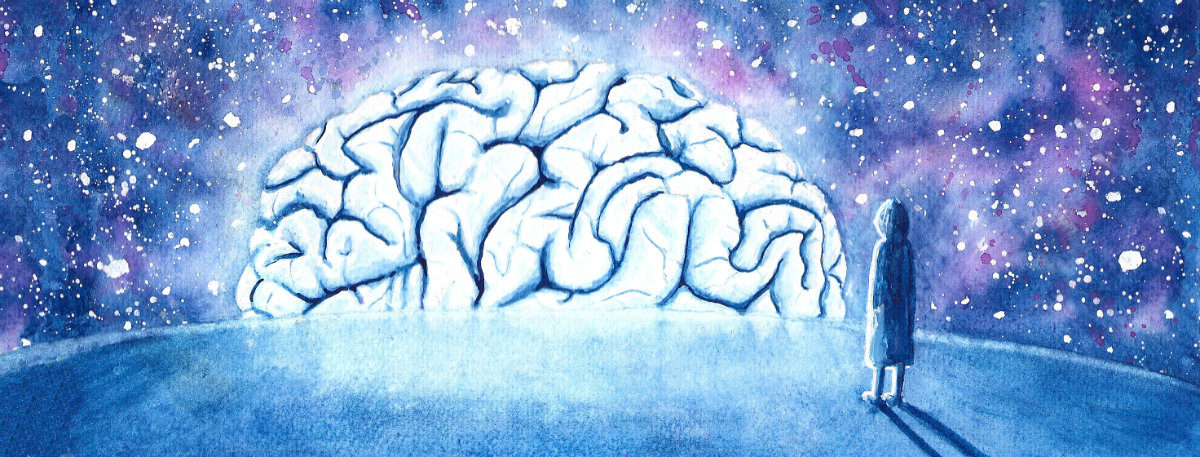Maybe first I’m gonna say that when I first had a stroke, I was 24. Now I’m older, but I know the experience of having a stroke at a young age. I can’t count how often I’ve heard the words, „so young and already had a stroke” or „I didn’t know you could have a stroke at such a young age!”. Even though it annoys me, I don’t blame people who say it. Strokes are associated with grandmas and grandpas. To tell the truth, people working in hospitals used to say the same thing. I won’t forget how nurses and cleaners questioned me about the cause of my condition, and then physiotherapists, even though each of them has surely encountered such cases, even if only briefly.
Stroke in old age: the statistics are unforgiving
 O.K., I shouldn’t complain. I was extraordinary. Statistics speak for themselves. After the age of 55, the risk of stroke significantly increases, and with each passing decade, it doubles. Considering that our society (Polish, but also across the Europe) is aging, and it is predicted that by 2060, nearly 35% of us will experience this disease, one can imagine the masses of older people in need of help, support, and treatment.
O.K., I shouldn’t complain. I was extraordinary. Statistics speak for themselves. After the age of 55, the risk of stroke significantly increases, and with each passing decade, it doubles. Considering that our society (Polish, but also across the Europe) is aging, and it is predicted that by 2060, nearly 35% of us will experience this disease, one can imagine the masses of older people in need of help, support, and treatment.
When describing this topic (I’m doing it for the second time because I lost many texts when moving my blog to a new site), I wondered why age is the most common risk factor. I came to the conclusion that the terms „age” and „old age” themselves don’t say much. What matters is what lies behind them. A quick research proved me right. Because old age is simply associated with many life changes that significantly increase the risk of a stroke. And this combination looks different for each older person.
Multipathology of old age?
One of the scientific publications on this topic used a term that really moved me: the multipathology of this period of life. It includes a regression of vitality, health, and quality of life. This perfectly describes old age, doesn’t it? Regression of vitality, health, and quality of life. And there’s even more behind these terms. Examples? Heart and circulatory system diseases, heart diseases, diabetes, atherosclerosis, less physical activity, chronic and sudden illnesses, eating habits acquired over the years and their change with age (e.g., often reduced appetite), loss of strength, a drop in blood pressure leading to ischemia in some areas of the brain, neurological changes, frequent immobilization… I’m sure there are many more factors, and all of them contribute to the landscape of old age.
Of course, these factors can occur in young people, and seniors don’t have to deal with all of them. However, according to the articles I found, each of these factors, often in combination with others, poses a risk. I accept this without discussion. Because in my imagination, as well as in my experience, old age is characterized by dealing with exactly these factors. And next to the calendar age, they make up old age. Looking at this mosaic, I’m not surprised that age is considered the greatest risk factor. I’m also not surprised that these factors are hidden under the term „old age” in articles. Multiple factors – one term. Oh well…
Looking at these factors, I can’t help but think that I don’t want to grow old. 😀
My research also pointed out other things: that age affects how strokes look, how they are treated, and how patients recover from the disease. I don’t want to write about it now because the text would be too long. However, it’s worth knowing that the number of strokes is increasing overall, and the number of strokes in young people is also rising. I once read that this is mainly due to an increased number of hemorrhages, not necessarily ischemic strokes… But I don’t know. I do know that young people in the stroke wards are less and less surprising.
It’s also terrifying. Also, dr. Marta Bott-Olejnik (I interviewed her, do you want to link? I mean… It’s in Polish, but maybe you want to google translate?) told me during an interview that the latest data show that one in four people will experience this disease. Just a few years ago, it was one in six. So it’s a massacre. Therefore, it’s worth taking care of oneself to reduce this risk. While we can’t escape the ailments of old age (unless we die earlier 😀 ), we can take care of ourselves when we are young. I wasn’t taking care of myself very well, and combined with medical factors, I received a gift in the form of months in the hospital and many years without work, but for now, I’m young by stroke standards, and I try to prevent it all from happening again.
Main sources:
Czynniki ryzyka wystąpienia udarów niedokrwiennych mózgu,
Analiza czynników ryzyka udaru niedokrwiennego mózgu
Deficyty poznawcze a kliniczny obraz depresji u osób w podeszłym wieku po udarze mózgu,
Wpływ wybranych czynników społeczno-demograficznych na przebieg udaru niedokrwiennego mózgu









